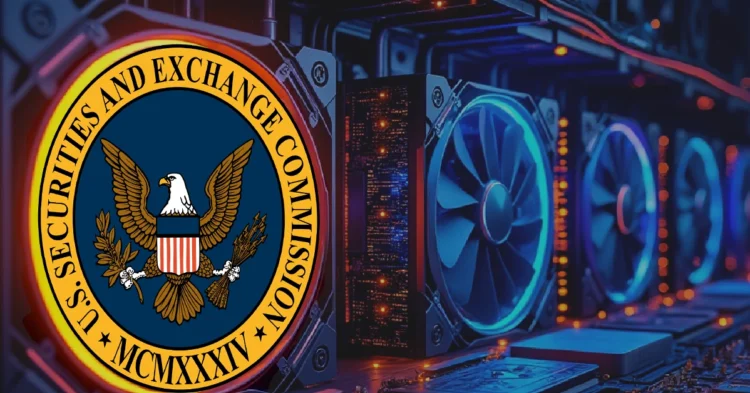The U.S Securities and Exchange Commission (SEC) has initiated legal proceedings against a Utah-based crypto mining company. The court has sanctioned the lawsuit to proceed to trial. The SEC alleges that the firm orchestrated a fraudulent scheme. Specifically, Green United is accused of raising a staggering $18 million from investors through the sale of non-existent crypto mining hardware. This case is unique in its nature, so let’s delve into what transpired and why the SEC decided to file this lawsuit.
What Happened? A Fake Mining Scheme Uncovered
Green United, spearheaded by Wright Thurston and Kristoffer Krohn, is accused of selling “Green Boxes” and “Green nodes” as specialized crypto mining equipment. Investors were led to believe that these devices would mine GREEN tokens on a “Green Blockchain,” which purportedly supported a public decentralized power grid and promised substantial returns—up to 50% monthly. However, according to the SEC, this blockchain never actually existed.
Instead, Thurston allegedly diverted the investors’ funds to purchase commercial Bitcoin mining machines (S9 Antminers) for personal gain. Investors were promised valuable GREEN tokens, but what they received were essentially worthless tokens created by Thurston himself on the Ethereum blockchain. No mined Bitcoin was ever shared with the investors.
The Court’s Ruling: The Case Goes to Trial
Despite Green United’s attempts to have the case dismissed, Judge Ann Marie McIff Allen ruled that the SEC had presented sufficient evidence. The court emphasized that the sales of these mining devices constituted “investment contracts,” making them subject to U.S. securities laws. The judge highlighted the deceptive nature of the operation, pointing out that investors were misled into believing they were earning legitimate returns, even though the tokens were fraudulent.
The ruling sent ripples through parts of the online crypto community, igniting rumors about the SEC potentially categorizing crypto mining devices as securities. However, Neeraj Agrawal from Coin Center reassured the crypto community that this lawsuit is specific to Green United’s fraudulent activities and does not impact legitimate mining operations.
What’s Next?
The lawsuit is now advancing to the discovery phase, and a trial appears imminent. If found guilty, Thurston and Krohn could face severe legal consequences. Their initial argument that the SEC lacks authority over digital assets was also dismissed by the court. Judge Allen noted that the SEC has been enforcing regulations of this nature for nearly a century.
Why Does It Matter?
This case underscores the risks associated with unregulated crypto investments and highlights the SEC’s ongoing efforts to clamp down on fraudulent schemes. The $18 million raised by Green United through false promises serves as a stark reminder to investors to be wary of opportunities that seem too good to be true in the crypto space.











